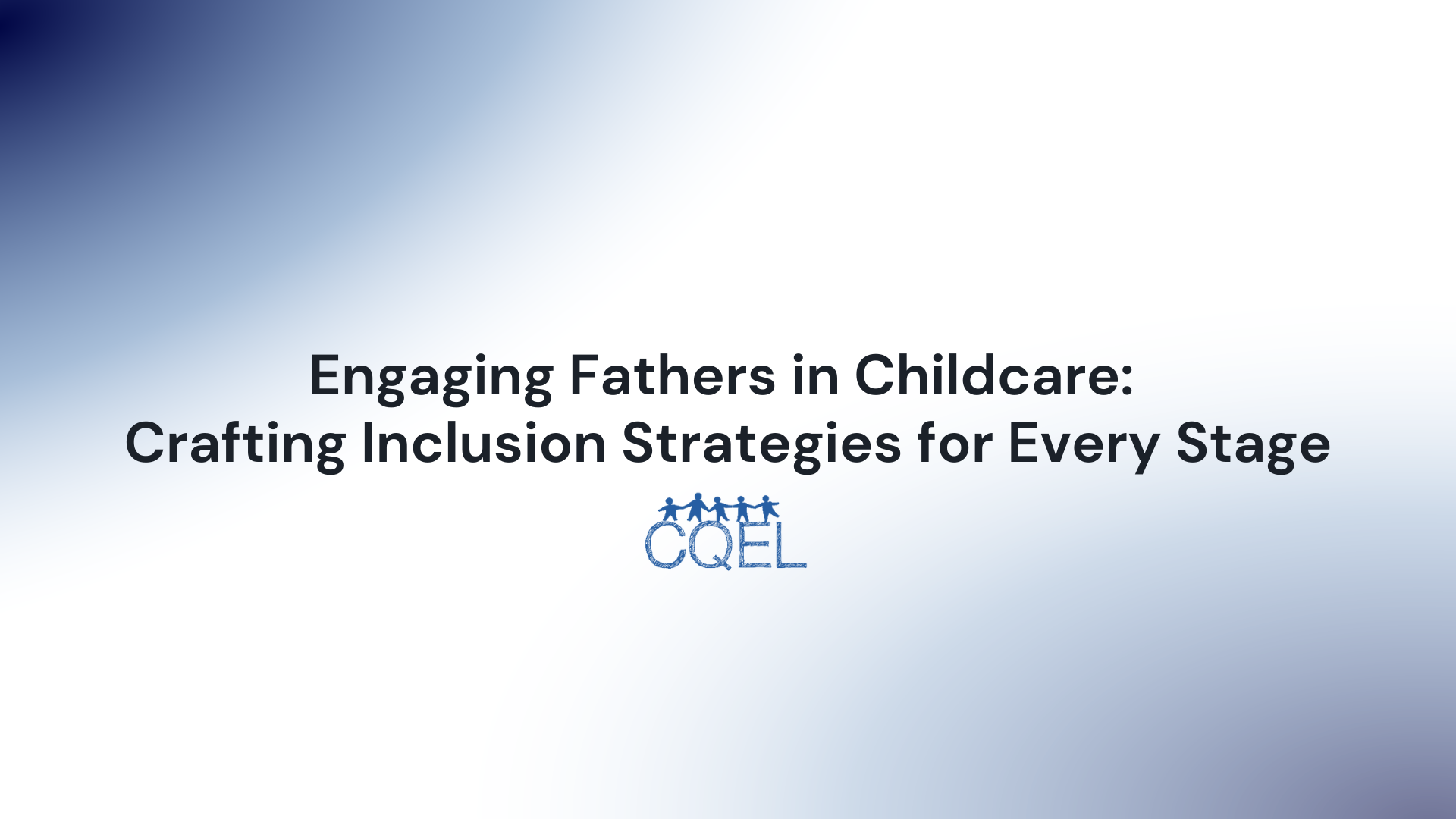Engaging Fathers in Childcare: Crafting Inclusion Strategies for Every Stage
This article explores innovative strategies to engage fathers more actively in your childcare program, with ideas tailored for each age group, from infants to five-year-olds.

In the realm of early childcare, the involvement of both parents can significantly enhance a child's cognitive, emotional, and social development. While traditionally, mothers have been the primary caregivers, an increasing body of research underscores fathers' unique and crucial role in their children's lives. However, fathers are often underrepresented in childcare settings. This article explores innovative strategies to engage fathers more actively in your childcare program, with ideas tailored for each age group, from infants to five-year-olds.
The Importance of Father Engagement
The involvement of fathers in early childhood settings can have far-reaching benefits. Not only does it support children's development, but it also helps to challenge traditional gender roles and promote equality. The National Responsible Fatherhood Clearinghouse offers various resources that elucidate the benefits of father engagement and guide fostering this critical relationship.
Engaging Fathers with Infants
The bonding process begins from day one, and fathers can take an active role even with infants. Simple actions such as holding, rocking, feeding, or changing diapers can create a strong bond. Consider organizing "Dad and Me" sessions where fathers can interact with their babies in a safe and supportive environment. The Zero to Three organization provides an excellent toolkit for engaging fathers with babies.
Involving Fathers with Toddlers
Toddlers are at a stage where they begin to explore their surroundings actively. Fathers can participate in this exploration by engaging in play activities, storytelling, or even taking toddlers for a nature walk. Organize events such as "Father-Toddler Playdates" to offer an inviting space for this interaction. The National Fatherhood Initiative's Playbook is a handy guide with valuable insights and tips on this topic.
Father Engagement with Preschoolers
Preschoolers can engage in more complex activities with their fathers. Reading together, crafting, or even cooking can be fun and educational. Scheduling regular "Father's Days" at your childcare center can encourage fathers to take part in their children's activities and experience their daily routines. The book "Dads and Preschoolers: Fun Activities and Tips for Every Stage" by Jessica Fabiano is a fantastic resource for this age group.
Connecting Fathers with Children Aged 4-5
At this age, children can participate in a wider variety of activities, from sports to arts and science projects. Consider organizing workshops where fathers and children can work together on projects. Inviting fathers to participate in their child's transition-to-school process can also be beneficial. The resource Head Start Father Engagement provides numerous resources and ideas for engaging fathers with older preschoolers.
Promoting a Father-Inclusive Mindset
Creating a father-inclusive environment goes beyond arranging activities. It involves cultivating a mindset that values and respects the role of fathers. Make sure your communications, resources, and staff training reflect this mindset. The Men in Early Childhood Education initiative offers a wealth of resources to help childcare centers foster a father-friendly environment.
Inclusive Childcare Embraces Fathers
Fathers play an irreplaceable role in a child's life journey, and their involvement enhances the richness of the childcare experience. By consciously fostering father-friendly environments and offering age-appropriate opportunities for engagement, childcare providers can play a pivotal role in promoting balanced, inclusive care. From infants to five-year-olds, every child stands to benefit from a nurturing connection with their fathers, ensuring an even more robust foundation for their growth and development.
